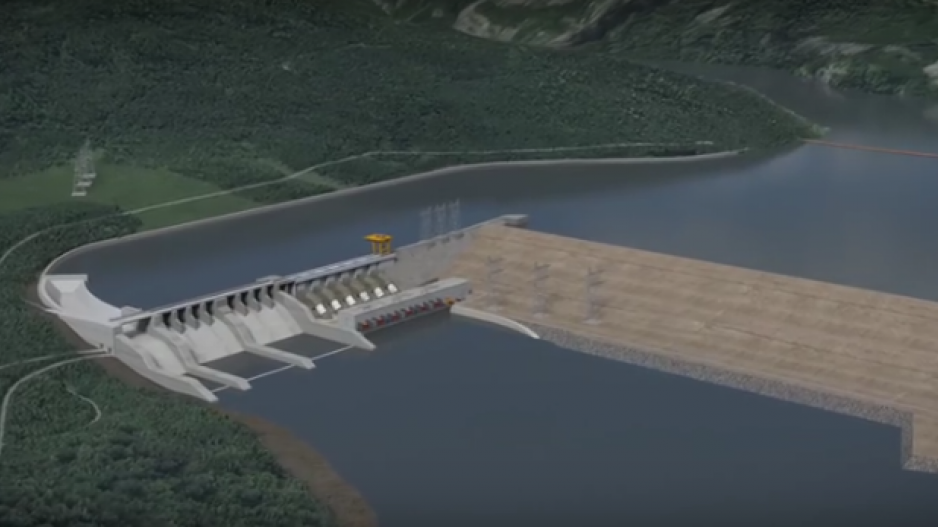BC Hydro breached two conditions of its environmental assessment certificate aimed at minimizing the flow of silt and runoff into the Peace River, according to an Environmental Assessment Office report.
Construction crews on the Site C dam failed to adequately control sediment and runoff into the Peace River, potentially hurting fish populations, investigators found.
The utility has been ordered to work with sediment control specialists to develop a new plan to combat erosion and runoff by April 22. Construction on the dam has included in-river excavation, requiring excavators and dump trucks to "wade" into the water, in many cases in below-freezing temperatures.
The EAO's findings are a small victory for opponents of the dam, Peace Valley Landowner Association president Ken Boon said Friday.
"They've been digging in that river since October, and we've been complaining about silt in the river since October," he said. "Our concern was they were creating way too much silt in the river itself with all the digging they did."
Elevated levels of silt and sediment put Peace River fish populations at risk - especially during spawning season, Boon said.
"Silt and eggs don't mix," he said. "That's why they make these conditions on these permits."
Under existing permits, silt levels are monitored above and below the site of in-river construction. If sediment levels rise above a certain level, construction must be halted.
"What we're coming to learn with this project is that practices that are not allowable anywhere else, the permits have been issued in such a way that basically, they can do whatever it takes to get it done," Boon said.
They're given very lenient guidelines to go by."
However, Site C spokesperson Dave Conway said the EAO order is an example of the system working.
"The issuance of an order demonstrates that environmental regulations, monitoring and site inspections work," he wrote in an email. "Problems at the site are being identified and corrective actions are being taken to address them."
That includes implementing a "project-wide" sediment and erosion control plan, Conway said.
In a submission to the Joint Review Panel appointed to review Site C, BC Hydro indicated it would develop an erosion and sediment control plan. BC Hydro said sediment "input" from in-stream construction activities would increase the Peace River's average sediment load by 0.2-0.3%.
Construction on the $8.8 billion dam began last summer.




